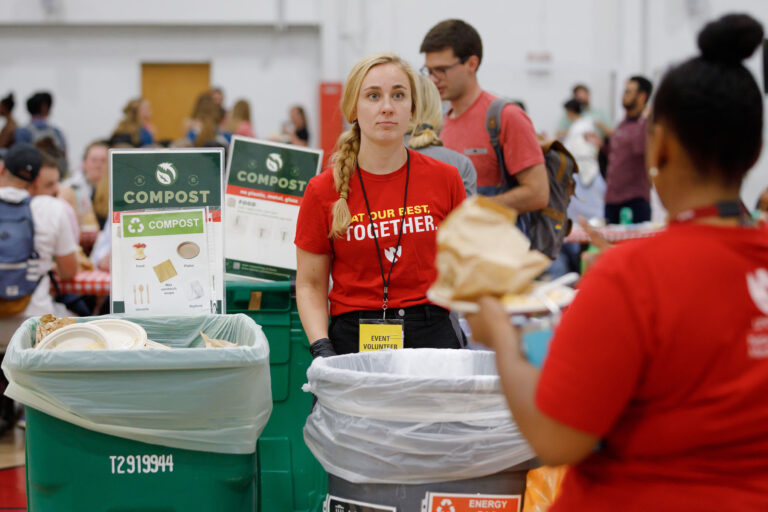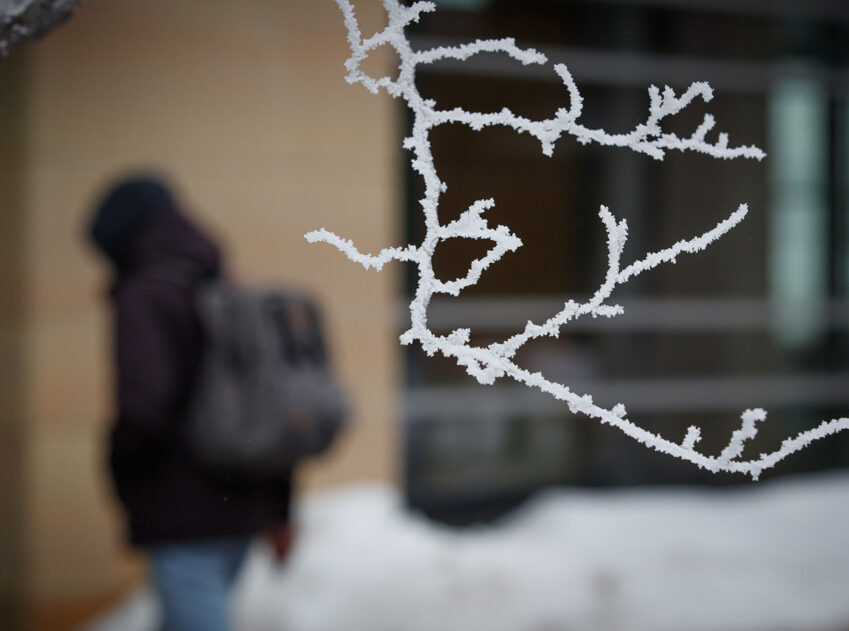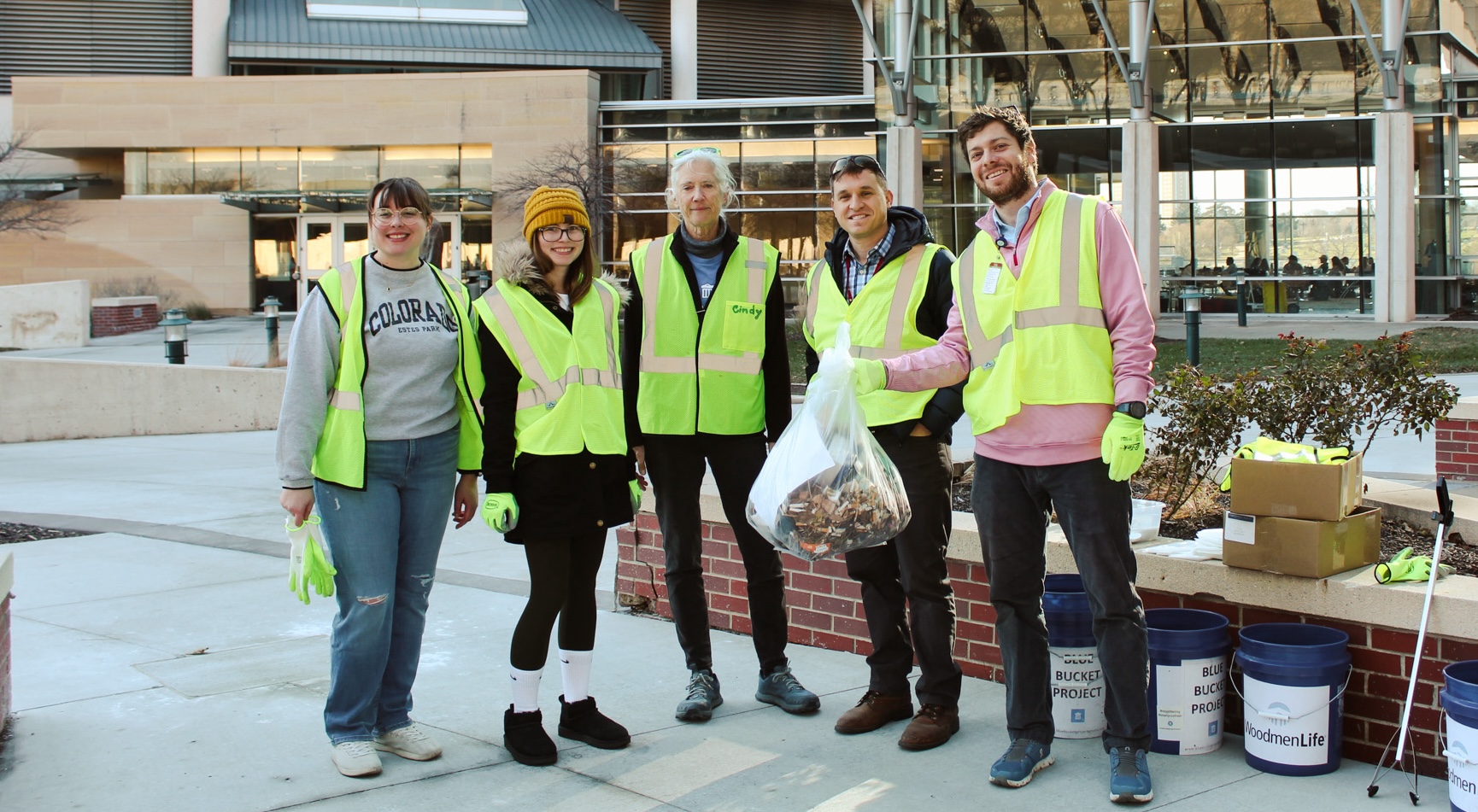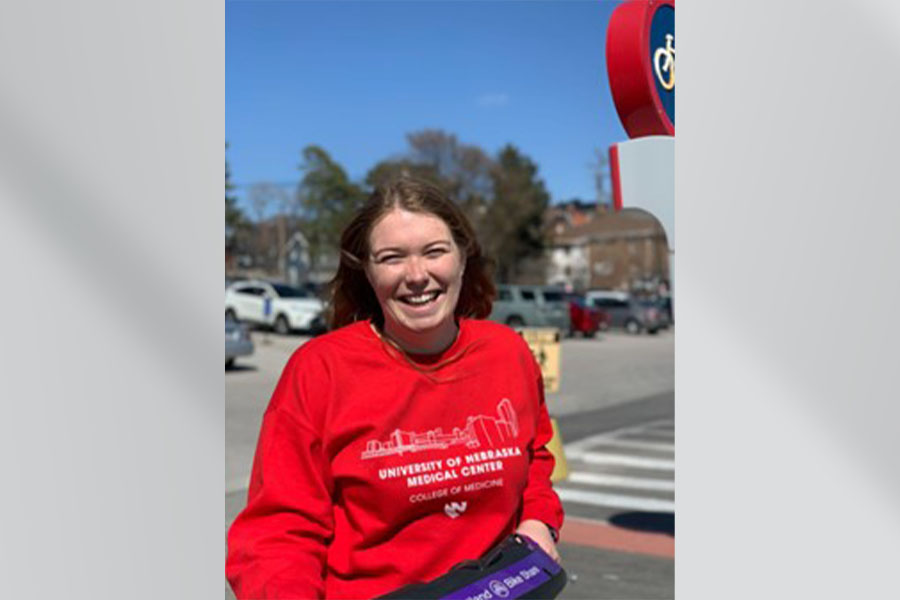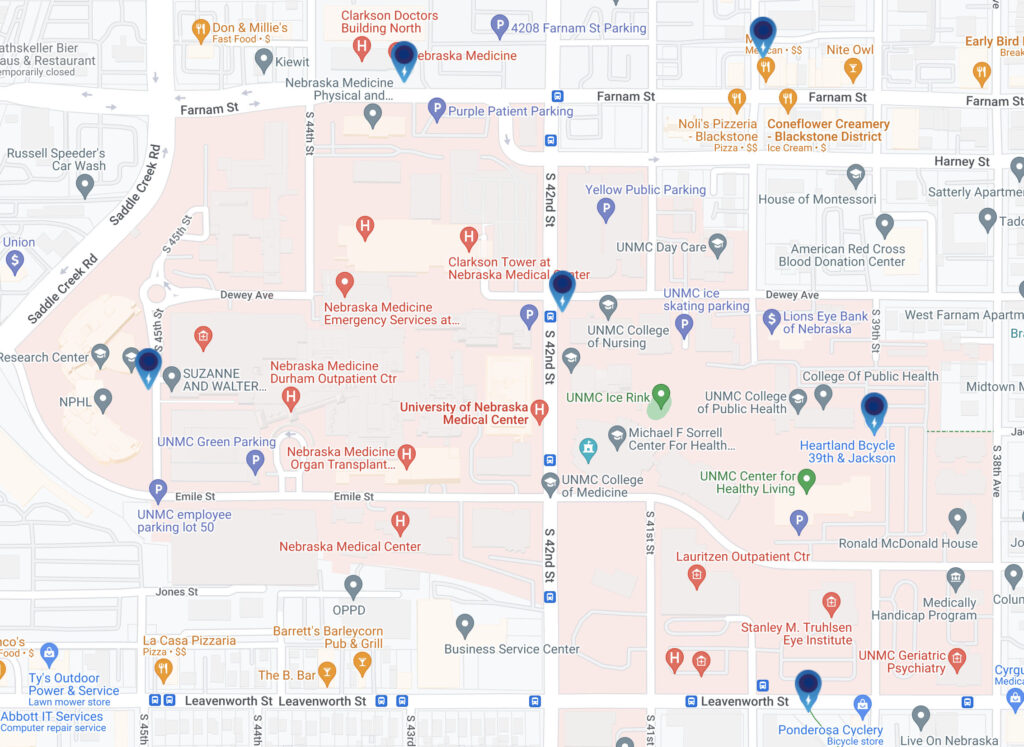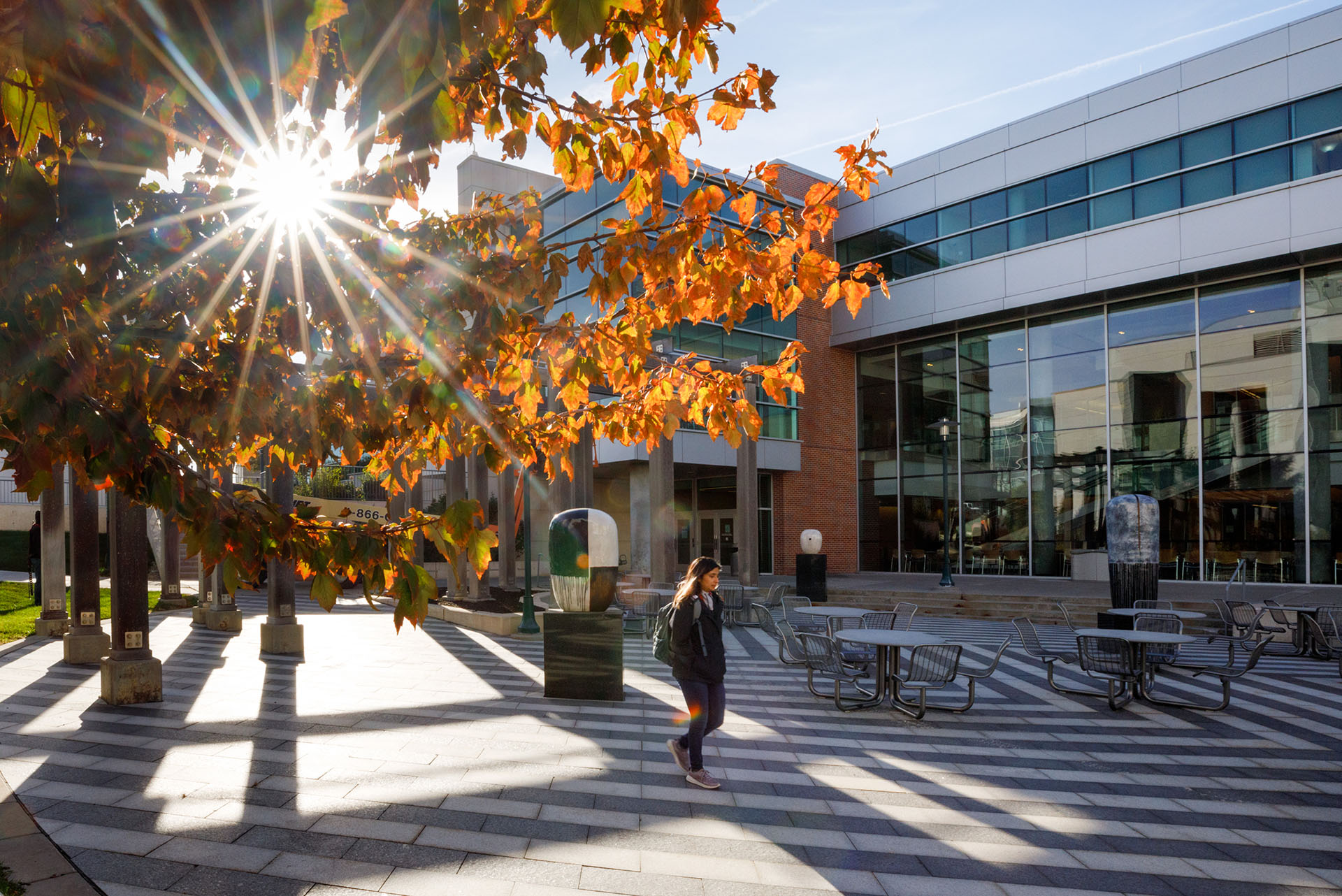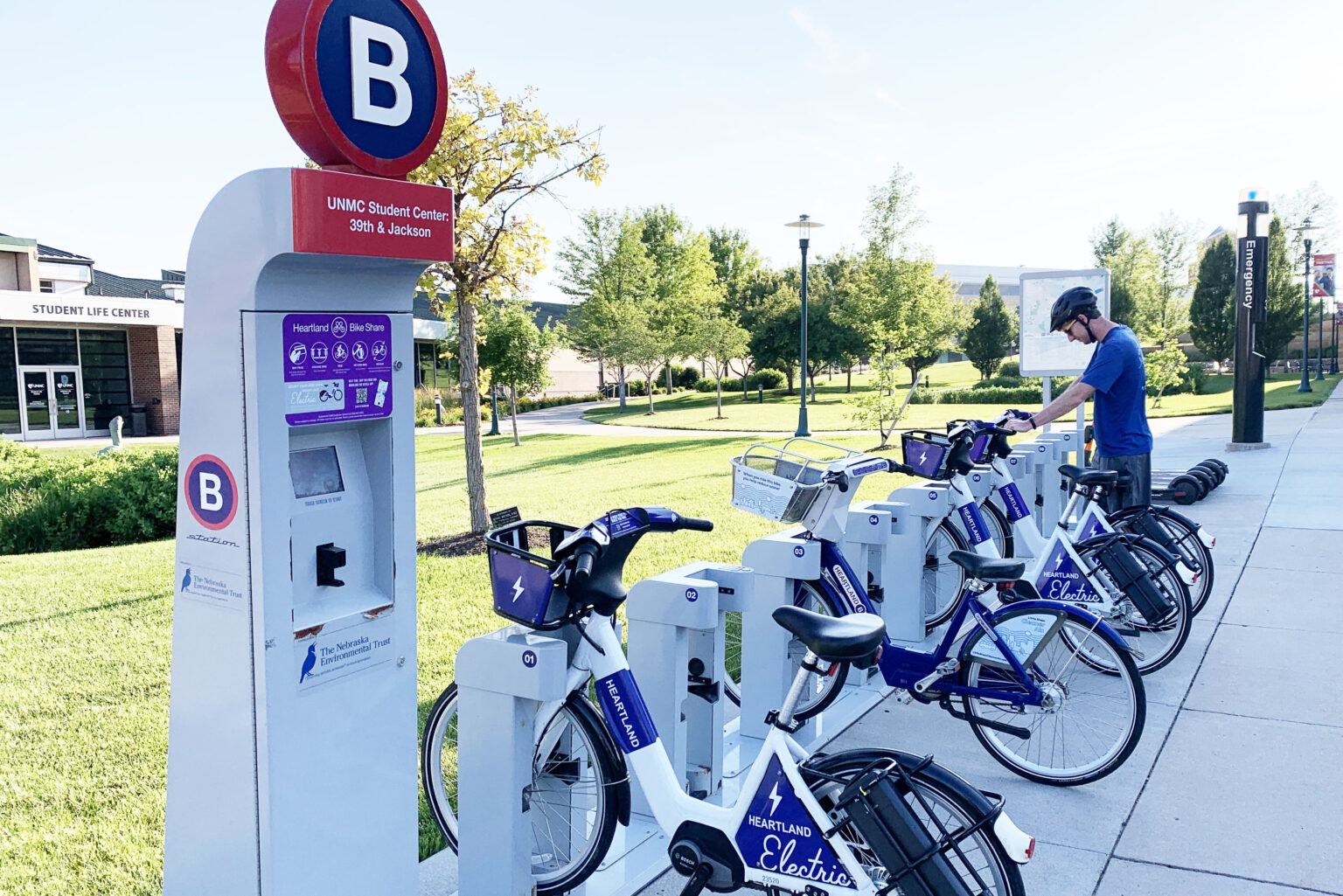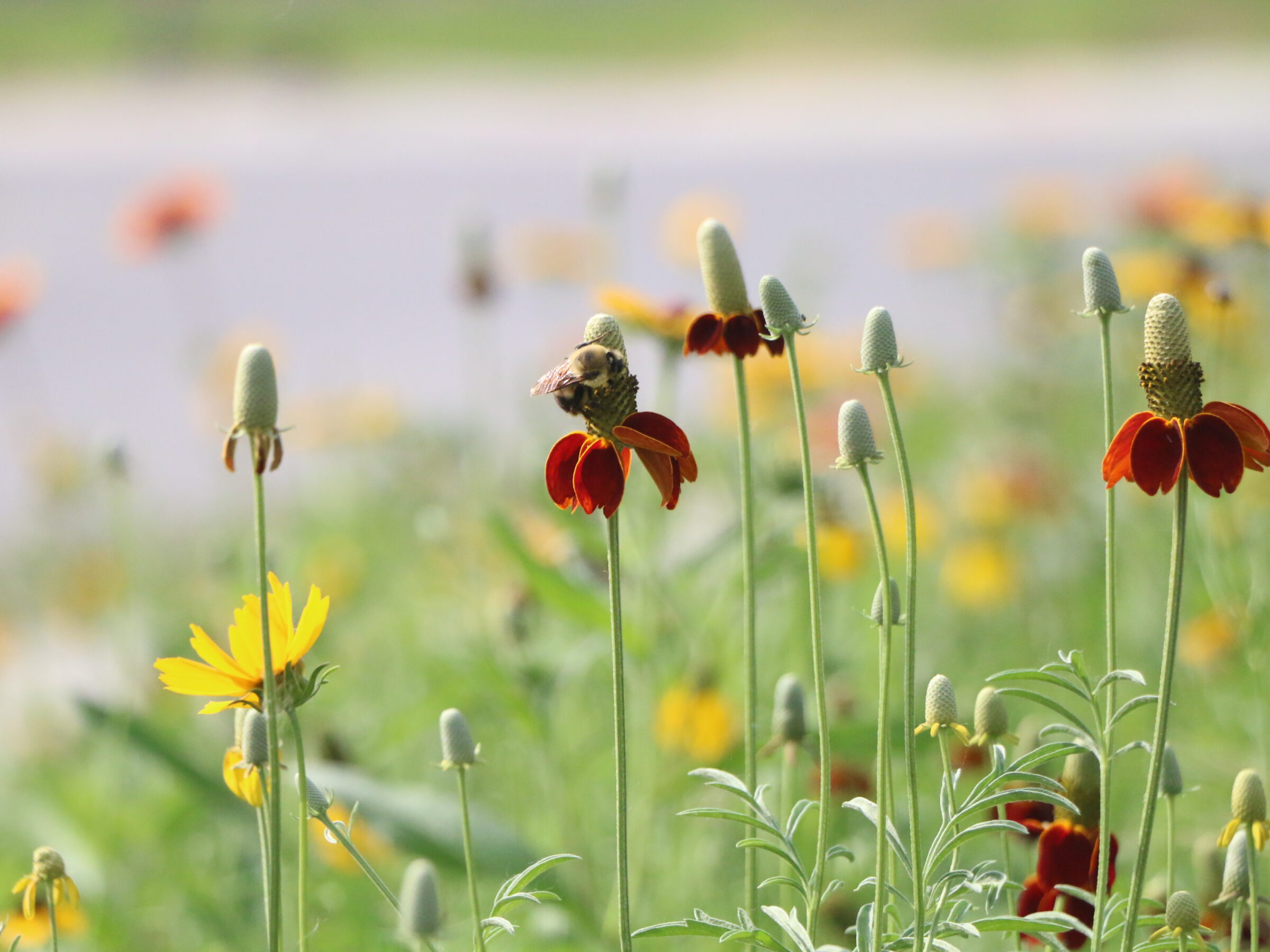Before the project, 1.65 acres of land were simply unused grass. While requiring a large amount of water, energy and maintenance, grass also does not support ecosystems and drains nutrients from the soil. Native plants, in contrast, require almost no maintenance while providing several environmental benefits, including:
- Air quality: Prairie plantings sequester carbon while cooling and cleaning the air.
- Soil management: Deep-rooted, native prairie perennials prevent erosion, create a habitat for healthy soil microorganisms and make it difficult for weeds to thrive over time.
- Water quality: Mature stands of prairie plantings improve water quality by filtering pollutants and reduce runoff by capturing up to nine inches of rainfall per hour, which – on campus — is especially important in the inclined areas and near Lot 16L.
- Improving ecosystems: Local animals and insects have increased access to pollen, food and other resources.
Studies suggest that visiting green spaces can reduce psychological stress compared to urban spaces. And finally, the flowers that bloom in these prairies throughout the growing season provide bright spots of color and joy.
Members of the med center community who are interested in supporting these efforts can check out native plants near Lots 16L, 64, and 54S on campus. Additionally, educational signage near Lots 64 and 16L provides more information about the impacts of native plants. To become more involved with sustainability on campus, consider becoming a LiveGreen Ambassador.

